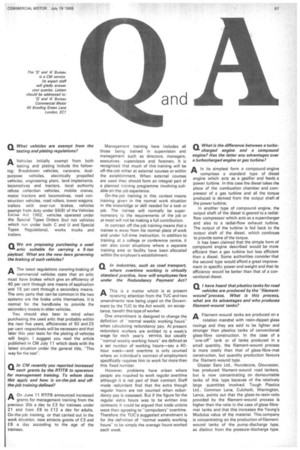Q In CM recently you reported increased
Page 69

If you've noticed an error in this article please click here to report it so we can fix it.
cash grants by the RTITB to operators for management training. To whom does this apply and how is on-the-job and offthe-job training defined?
AOn June 11 RTITB announced increased
grants for management training from the previous 30s a day to £3 for trainees under 21 and from £6 to £12 a day for adults. On-the-job training, or that carried out in the work situation, now attracts grants of £3 and £6 a day according to the age of the trainees, Management training here includes all those being trained in supervision and management such as directors, managers, executives, supervisors and foremen. It is recognized that much of this training will be off-the-job either at external courses or within the establishment. When external courses are used they should form an integral part of a planned training programme involving suitable on-the-job experience.
On-the-job training in this context means training given in the normal work situation in the knowledge or skill needed for a task or job. The trainee will normally be supernumerary to the requirements of the job or at most will not be making a full contribution.
In contrast off-the-job training means that a trainee is away from his normal place of work and under full-time instruction. In addition to training at a college or conference centre, it can also cover situations where a separate training area or facility have been allocated within the employer's establishment.




















































































































